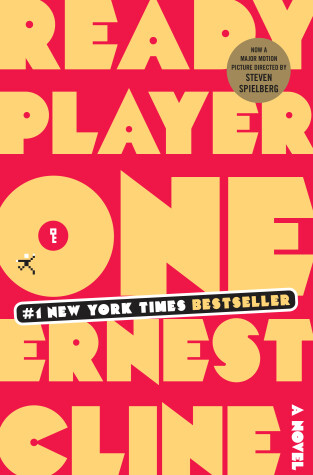Reviewed by pamela on
Cline knows his audience well. The narrative of Ready Player One is so chock full of pop culture references that I’m surprised he managed to fit a plot in there at all. From old arcade games, through to John Hughes films and more prog music references than you can poke a stick at (I’m looking at you, Rush!), there’s something in here for everyone who grew up or was born in the 80’s. He manages to create a palpable sense of nostalgia which drives the plot forward and had me giggling with joy whenever he mentioned something that I was particularly fond of. And there we have the appeal of this book. The age of the Geek is now, but so many of us grew up at a time when being a gamer, reading science-fiction and fantasy and listening to prog rock until the early hours of the morning made us anything but cool. A book like Ready Player One brings those things into the now and lets us enjoy them alongside a youth who don’t suffer the same stigma associated with those interests.
Ready Player One’s pacing is perfect. It starts off with just the right amount of exposition, gets us interested in the world that Cline is building and then sets off running. The search for the keys is exciting, and I found myself trying to solve the clues along with Wade to see how good my own 80’s pop-culture memory was. The clues are cryptic enough to not be solved quickly, but make sense when they’re resolved without feeling forced. There are moments of tension and intrigue, and the way the final battle was written was so well rendered that I could almost see it right in front of me. With that said, however, there are lots of moments when things are a little too convenient. Wade just happens to be good at everything the plot needs him to be good at, and characters just happen to find the right objects immediately before needing them. But these conveniences did move the plot a long pretty quickly and only slightly detracted from the tension, and because I was enjoying the experience so much I was willing to forgive this much more readily than if the same had happened in any other book.
The biggest issue with Ready Player One is the characterisation. As exciting as the narrative is, it’s carried along by the reader’s interest in the culture and the concept, and certainly not by the strength of its characters. Wade is unlikeable, with the emotional range of a wet rag, Art3mis was pretty much the generic manic pixie dream girl, Aech was ‘token’ to say the least, and Daito and Shoto were nothing more than a stereotype of how the western media has portrayed all Asian gamers since there were Asian gamers. There is a romance between Wade and Art3mis which was incredibly unromantic and completely unbelievable, so it’s a shame that the book ended with it as it was the weakest part of the narrative. It made me feel a little disappointed at the end after having so thoroughly enjoyed myself for the rest of it. The main antagonist, Sorrento, head of operations at IOI, the evil corporation who serve as the big bad of the narrative, is even worse. He was like Dr Evil or Monty Burns, and it was hard to take his over-the-top threats seriously, especially since Wade seemed so completely unfazed by them! Because Ready Player One was so full of action, I feel it would have been served by a more subtle antagonist who was undermining, rather than overbearing.
Ready Player One is far from a perfect book. It has flaws, lots of them, but ultimately it doesn’t matter. If the point of reading is to have fun, then Ernest Cline has achieved that. This is the most fun I’ve had with a book in ages.
Read this review and more at I Blame Wizards.
Reading updates
- Started reading
- 25 August, 2017: Finished reading
- 25 August, 2017: Reviewed
